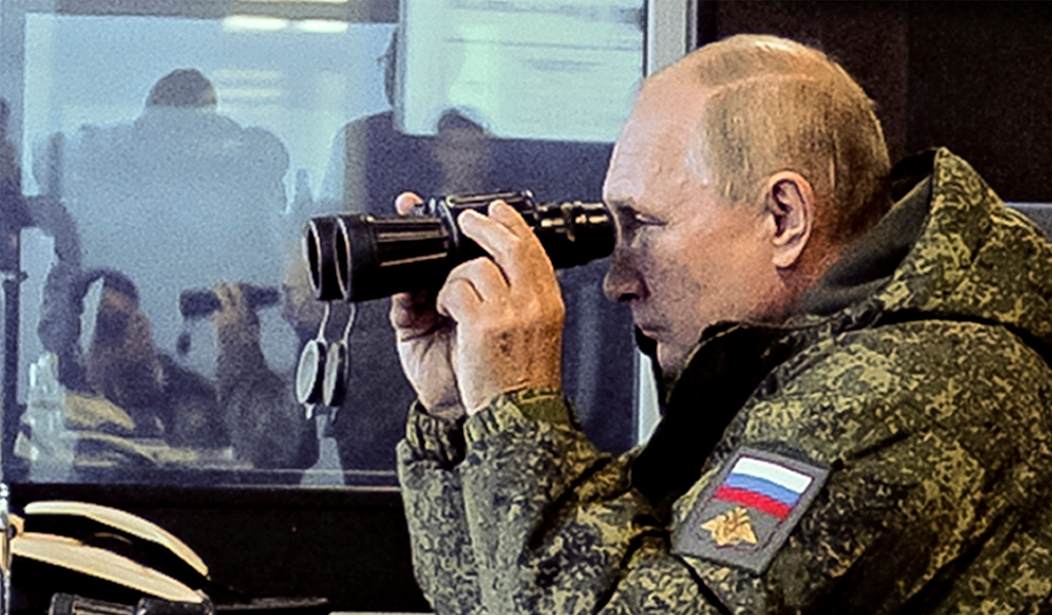“Russian soldiers go into battle with little food, few bullets and instructions grabbed from Wikipedia for weapons they barely know how to use.” So begins the New York Time‘s 10,000-word unpacking of Russia’s military failure in Ukraine.
Russian President Vladimir Putin comes in for a lot of much-deserved blame. His blunders were personality-driven. Arrogance — “profoundly isolated in the pandemic, obsessed with his legacy, convinced of his own brilliance,” according to the Times. But it was the legacy of the fall of the Soviet Union 30 years earlier that played the largest role in the catastrophe.
By the end of Communism’s hold on Russia, the state and every organ that fed it were corrupt. It wasn’t ordinary corruption, either. This kind of state-sponsored corruption ended up corrupting the masses. And because of that, corruption became a way of life — something to lie about, to cheat, and to calculate.
To tell this story, the Times reporters read “hundreds of Russian government emails, documents, invasion plans, military ledgers, and propaganda directives.” They also “listened to Russian phone calls from the battlefield and spoke with dozens of soldiers, senior officials and Putin confidants who have known him for decades.”
Related: UKRAINE WAR: Putin Is Ready for a Long War, But Is Russia?
The picture that emerges is one of incompetent and ignorant military commanders leading soldiers who had no idea they were going into battle after being told they wouldn’t see any action. Poorly trained and criminally short of supplies, the Russian Army’s failures on the battlefield were due to corruption. The ledgers said the troops had plenty of food and were well-supplied. But even though the supplies were supposedly ordered, shipped, and delivered, they never made it into the hands of the soldiers.
Hundreds of billions of dollars worth of military equipment has apparently simply disappeared, and the Russian troops are paying for it.
In interviews, Putin associates said he spiraled into self-aggrandizement and anti-Western zeal, leading him to make the fateful decision to invade Ukraine in near total isolation, without consulting experts who saw the war as pure folly. Aides and hangers-on fueled his many grudges and suspicions, a feedback loop that one former confidant likened to the radicalizing effect of a social-media algorithm. Even some of the president’s closest advisers were left in the dark until the tanks began to move. As another longtime confidant put it, “Putin decided that his own thinking would be enough.”
The series of catastrophic blunders — most of them avoidable — that led to tens of thousands of dead Russian soldiers explains how the perceived invincibility of the Russian army fell apart within a few weeks of combat.
Once the invasion began, Russia squandered its dominance over Ukraine through a parade of blunders. It relied on old maps and bad intelligence to fire its missiles, leaving Ukrainian air defenses surprisingly intact, ready to defend the country. Russia’s vaunted hacking squads tried, and failed, to win in what some officials call the first big test of cyberweapons in actual warfare. Russian soldiers, many shocked they were going to war, used their cellphones to call home, allowing the Ukrainians to track them and pick them off in large numbers. And Russia’s armed forces were so stodgy and sclerotic that they did not adapt, even after enduring huge losses on the battlefield. While their planes were being shot down, many Russian pilots flew as if they faced no danger, almost like they were at an air show.
At one point, Russian commanders were ordering the kind of World War I assaults on fixed positions that resulted in slaughter. Attack after attack was repulsed. Eventually, the soldiers simply refused to fight.
There were also incidents involving combat between rival units.
As the initial invasion failed, the atomized approach only deepened, chipping away at an already disjointed war effort. Now, Mr. Putin’s fractured armies often function like rivals, competing for weapons and, at times, viciously turning on one another. One soldier recounted how the clashes became violent, with a Russian tank commander deliberately charging at his supposed allies and blowing up their checkpoint.
Putin is not going to sue for peace. In a meeting between defense chiefs in October, the Russians wanted Biden to know that no matter how many Russian soldiers are killed or wounded on the battlefield, Russia will not give up.
Unless Putin and his generals can right the ship and reform the military on the fly, it doesn’t appear that the situation is going to get any better for the Russian soldier.










